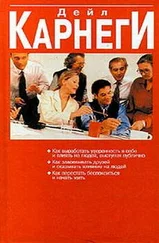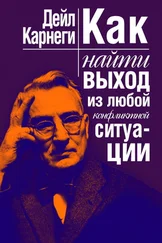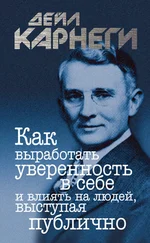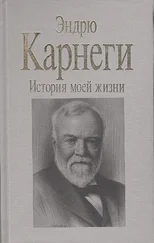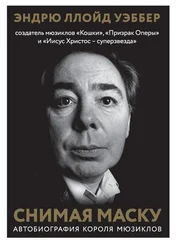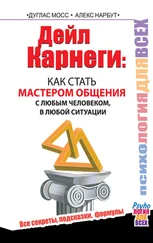Эндрю Карнеги - Autobiography of Andrew Carnegie
Здесь есть возможность читать онлайн «Эндрю Карнеги - Autobiography of Andrew Carnegie» — ознакомительный отрывок электронной книги совершенно бесплатно, а после прочтения отрывка купить полную версию. В некоторых случаях можно слушать аудио, скачать через торрент в формате fb2 и присутствует краткое содержание. Жанр: Биографии и Мемуары, foreign_antique, на английском языке. Описание произведения, (предисловие) а так же отзывы посетителей доступны на портале библиотеки ЛибКат.
- Название:Autobiography of Andrew Carnegie
- Автор:
- Жанр:
- Год:неизвестен
- ISBN:нет данных
- Рейтинг книги:3 / 5. Голосов: 1
-
Избранное:Добавить в избранное
- Отзывы:
-
Ваша оценка:
- 60
- 1
- 2
- 3
- 4
- 5
Autobiography of Andrew Carnegie: краткое содержание, описание и аннотация
Предлагаем к чтению аннотацию, описание, краткое содержание или предисловие (зависит от того, что написал сам автор книги «Autobiography of Andrew Carnegie»). Если вы не нашли необходимую информацию о книге — напишите в комментариях, мы постараемся отыскать её.
Autobiography of Andrew Carnegie — читать онлайн ознакомительный отрывок
Ниже представлен текст книги, разбитый по страницам. Система сохранения места последней прочитанной страницы, позволяет с удобством читать онлайн бесплатно книгу «Autobiography of Andrew Carnegie», без необходимости каждый раз заново искать на чём Вы остановились. Поставьте закладку, и сможете в любой момент перейти на страницу, на которой закончили чтение.
Интервал:
Закладка:
I know of no better mode of benefiting a youth than joining such a club as this. Much of my reading became such as had a bearing on forthcoming debates and that gave clearness and fixity to my ideas. The self-possession I afterwards came to have before an audience may very safely be attributed to the experience of the "Webster Society." My two rules for speaking then (and now) were: Make yourself perfectly at home before your audience, and simply talk to them, not at them. Do not try to be somebody else; be your own self and talk , never "orate" until you can't help it.
I finally became an operator by sound, discarding printing entirely. The accomplishment was then so rare that people visited the office to be satisfied of the extraordinary feat. This brought me into such notice that when a great flood destroyed all telegraph communication between Steubenville and Wheeling, a distance of twenty-five miles, I was sent to the former town to receive the entire business then passing between the East and the West, and to send every hour or two the dispatches in small boats down the river to Wheeling. In exchange every returning boat brought rolls of dispatches which I wired East, and in this way for more than a week the entire telegraphic communication between the East and the West via Pittsburgh was maintained.
While at Steubenville I learned that my father was going to Wheeling and Cincinnati to sell the tablecloths he had woven. I waited for the boat, which did not arrive till late in the evening, and went down to meet him. I remember how deeply affected I was on finding that instead of taking a cabin passage, he had resolved not to pay the price, but to go down the river as a deck passenger. I was indignant that one of so fine a nature should be compelled to travel thus. But there was comfort in saying:
"Well, father, it will not be long before mother and you shall ride in your carriage."
My father was usually shy, reserved, and keenly sensitive, very saving of praise (a Scotch trait) lest his sons might be too greatly uplifted; but when touched he lost his self-control. He was so upon this occasion, and grasped my hand with a look which I often see and can never forget. He murmured slowly:
"Andra, I am proud of you."
The voice trembled and he seemed ashamed of himself for saying so much. The tear had to be wiped from his eye, I fondly noticed, as he bade me good-night and told me to run back to my office. Those words rang in my ear and warmed my heart for years and years. We understood each other. How reserved the Scot is! Where he feels most he expresses least. Quite right. There are holy depths which it is sacrilege to disturb. Silence is more eloquent than words. My father was one of the most lovable of men, beloved of his companions, deeply religious, although non-sectarian and non-theological, not much of a man of the world, but a man all over for heaven. He was kindness itself, although reserved. Alas! he passed away soon after returning from this Western tour just as we were becoming able to give him a life of leisure and comfort.
After my return to Pittsburgh it was not long before I made the acquaintance of an extraordinary man, Thomas A. Scott, one to whom the term "genius" in his department may safely be applied. He had come to Pittsburgh as superintendent of that division of the Pennsylvania Railroad. Frequent telegraphic communication was necessary between him and his superior, Mr. Lombaert, general superintendent at Altoona. This brought him to the telegraph office at nights, and upon several occasions I happened to be the operator. One day I was surprised by one of his assistants, with whom I was acquainted, telling me that Mr. Scott had asked him whether he thought that I could be obtained as his clerk and telegraph operator, to which this young man told me he had replied:
"That is impossible. He is now an operator."
But when I heard this I said at once:
"Not so fast. He can have me. I want to get out of a mere office life. Please go and tell him so."
The result was I was engaged February 1, 1853, at a salary of thirty-five dollars a month as Mr. Scott's clerk and operator. A raise in wages from twenty-five to thirty-five dollars per month was the greatest I had ever known. The public telegraph line was temporarily put into Mr. Scott's office at the outer depot and the Pennsylvania Railroad Company was given permission to use the wire at seasons when such use would not interfere with the general public business, until their own line, then being built, was completed.
CHAPTER VI
RAILROAD SERVICE
FROMthe operating-room of the telegraph office I had now stepped into the open world, and the change at first was far from agreeable. I had just reached my eighteenth birthday, and I do not see how it could be possible for any boy to arrive at that age much freer from a knowledge of anything but what was pure and good. I do not believe, up to that time, I had ever spoken a bad word in my life and seldom heard one. I knew nothing of the base and the vile. Fortunately I had always been brought in contact with good people.
I was now plunged at once into the company of coarse men, for the office was temporarily only a portion of the shops and the headquarters for the freight conductors, brakemen, and firemen. All of them had access to the same room with Superintendent Scott and myself, and they availed themselves of it. This was a different world, indeed, from that to which I had been accustomed. I was not happy about it. I ate, necessarily, of the fruit of the tree of knowledge of good and evil for the first time. But there were still the sweet and pure surroundings of home, where nothing coarse or wicked ever entered, and besides, there was the world in which I dwelt with my companions, all of them refined young men, striving to improve themselves and become respected citizens. I passed through this phase of my life detesting what was foreign to my nature and my early education. The experience with coarse men was probably beneficial because it gave me a "scunner" (disgust), to use a Scotism, at chewing or smoking tobacco, also at swearing or the use of improper language, which fortunately remained with me through life.
I do not wish to suggest that the men of whom I have spoken were really degraded or bad characters. The habit of swearing, with coarse talk, chewing and smoking tobacco, and snuffing were more prevalent then than to-day and meant less than in this age. Railroading was new, and many rough characters were attracted to it from the river service. But many of the men were fine young fellows who have lived to be highly respectable citizens and to occupy responsible positions. And I must say that one and all of them were most kind to me. Many are yet living from whom I hear occasionally and regard with affection. A change came at last when Mr. Scott had his own office which he and I occupied.
I was soon sent by Mr. Scott to Altoona to get the monthly pay-rolls and checks. The railroad line was not completed over the Allegheny Mountains at that time, and I had to pass over the inclined planes which made the journey a remarkable one to me. Altoona was then composed of a few houses built by the company. The shops were under construction and there was nothing of the large city which now occupies the site. It was there that I saw for the first time the great man in our railroad field—Mr. Lombaert, general superintendent. His secretary at that time was my friend, Robert Pitcairn, for whom I had obtained a situation on the railroad, so that "Davy," "Bob," and "Andy" were still together in the same service. We had all left the telegraph company for the Pennsylvania Railroad Company.
Mr. Lombaert was very different from Mr. Scott; he was not sociable, but rather stern and unbending. Judge then of Robert's surprise, and my own, when, after saying a few words to me, Mr. Lombaert added: "You must come down and take tea with us to-night." I stammered out something of acceptance and awaited the appointed hour with great trepidation. Up to this time I considered that invitation the greatest honor I had received. Mrs. Lombaert was exceedingly kind, and Mr. Lombaert's introduction of me to her was: "This is Mr. Scott's 'Andy.'" I was very proud indeed of being recognized as belonging to Mr. Scott.
Читать дальшеИнтервал:
Закладка:
Похожие книги на «Autobiography of Andrew Carnegie»
Представляем Вашему вниманию похожие книги на «Autobiography of Andrew Carnegie» списком для выбора. Мы отобрали схожую по названию и смыслу литературу в надежде предоставить читателям больше вариантов отыскать новые, интересные, ещё непрочитанные произведения.
Обсуждение, отзывы о книге «Autobiography of Andrew Carnegie» и просто собственные мнения читателей. Оставьте ваши комментарии, напишите, что Вы думаете о произведении, его смысле или главных героях. Укажите что конкретно понравилось, а что нет, и почему Вы так считаете.

